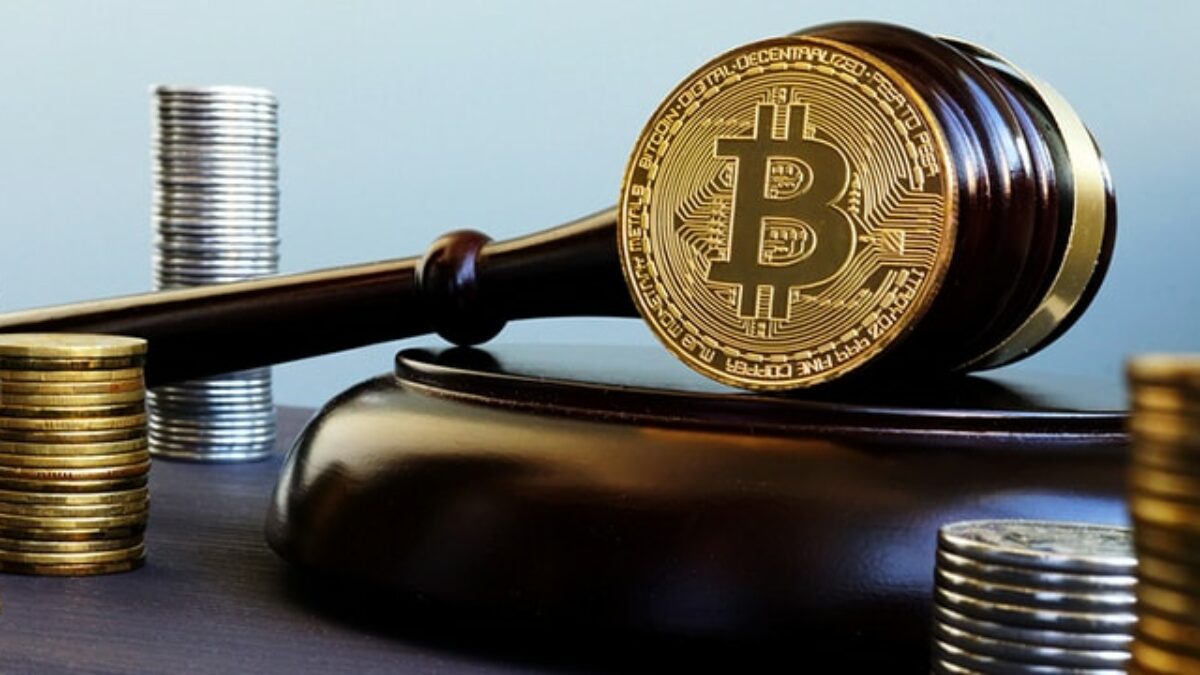Debate Intensifies Over Crypto Regulation Amid SAB 121 Bill Veto
12.07.2024 7:30 2 min. read Alexander Stefanov
Amidst recent turbulence in the crypto market, the spotlight is firmly on the SAB 121 Bill, an initiative by the SEC aimed at increasing transparency and regulatory oversight within the cryptocurrency sector.
This bill mandates that crypto firms must list customer holdings as liabilities on their balance sheets, a move intended to mitigate risks associated with crypto investments.
Initially met with resistance, Congress attempted to block the bill through H.J. Res. 109, only to face President Biden’s subsequent veto, which reinstated the SAB 121 Bill. This decision has reignited debates over its potential implications for market innovation and the involvement of banking institutions in crypto custody.
Supporters of the SAB 121 Bill argue that it provides essential clarity and security measures for investors navigating the volatile world of cryptocurrencies.
By requiring firms to disclose customer holdings and liabilities, the bill aims to protect consumers and bolster market stability. Proponents believe that such regulatory frameworks are necessary to foster trust and attract mainstream adoption of digital assets like Bitcoin and Ethereum. They contend that increased transparency will also deter fraudulent activities and provide a more stable investment environment.
However, critics, including private companies and banking sectors, have expressed concerns over the bill’s restrictive nature. They argue that by mandating stringent reporting requirements and limiting banking institutions from offering crypto custody services, the bill could stifle innovation and limit investor options.
Opponents suggest that such regulations may drive investors towards unregulated entities, potentially compromising asset safety and market stability. As the debate continues, stakeholders across the financial and crypto industries await further developments that could shape the future regulatory landscape for digital assets.
-
1
Vietnam Charts a Clear Course for Digital Assets With New 2026 Law
16.06.2025 18:00 1 min. read -
2
GENIUS Act Clears Senate, Setting Stage for First U.S. Crypto Law
18.06.2025 12:00 1 min. read -
3
Coinbase and Set Gemini to Expand in EU Under MiCA Rules
17.06.2025 13:00 2 min. read -
4
Wall Street Prepares for Stablecoin Integration as Regulatory Path Clears
19.06.2025 11:00 1 min. read -
5
U.S. Senate Moves Closer to Passing Landmark Stablecoin Legislation
17.06.2025 10:00 1 min. read
SEC Chairman With Important Comments on Regulation, Crypto, and Trading
U.S. Securities and Exchange Commission (SEC) Chairman Paul Atkins has emphasized the agency’s continued focus on investor protection, addressing insider trading, market manipulation, and the evolving landscape of cryptocurrency regulation.
Arizona Governor Vetoes Bill, Related to State Crypto Reserve Fund: Here Is Why
Arizona Governor Katie Hobbs has officially vetoed House Bill 2324, a legislative proposal that aimed to create a state-managed reserve fund for holding seized cryptocurrency assets.
SEC Explores New Fast-Track Process for Token-Based ETFs
The U.S. Securities and Exchange Commission (SEC) is in the early stages of developing a standardized listing framework for token-based exchange-traded funds (ETFs), according to a July 1 report by journalist Eleanor Terrett.
SEC Approves Grayscale ETF Tracking Top Five Cryptocurrencies
The U.S. Securities and Exchange Commission (SEC) has officially approved the conversion of the Grayscale Digital Large Cap Fund into an exchange-traded fund (ETF), finalizing its transition from an over-the-counter product into a fully regulated ETF structure.
-
1
Vietnam Charts a Clear Course for Digital Assets With New 2026 Law
16.06.2025 18:00 1 min. read -
2
GENIUS Act Clears Senate, Setting Stage for First U.S. Crypto Law
18.06.2025 12:00 1 min. read -
3
Coinbase and Set Gemini to Expand in EU Under MiCA Rules
17.06.2025 13:00 2 min. read -
4
Wall Street Prepares for Stablecoin Integration as Regulatory Path Clears
19.06.2025 11:00 1 min. read -
5
U.S. Senate Moves Closer to Passing Landmark Stablecoin Legislation
17.06.2025 10:00 1 min. read


